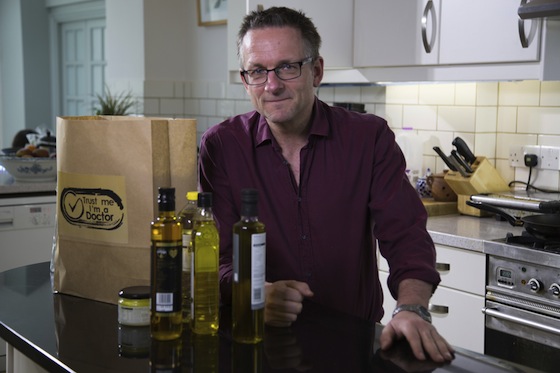Researchers for De Montfort University Leicester (DMU) have been testing a plant said to help reduce alcohol cravings and make hangovers more bearable as part of hit BBC show
Trust Me, I’m a Doctor.
Scientists from DMU’s Faculty of Health and Life Sciences were tasked with carrying out a series of experiments on a product marketed as Kudzu, or Japanese Arrowroot, which has been used as a remedy for alcoholism and hangovers.

Professor Martin Grootveld, Dr Randolph Arroo, Dr Paul Bremner and PhD researcher Victor Ruiz-Rodado of the Leicester School of Pharmacy, subjected a sample to a series of advanced multi-analytical tests which confirmed that the advertised product was indeed what the label stated.
Professor Grootveld, professor of bio-analytical chemistry and chemical pathology, said: “The BBC approached us and wanted us to carry out some tests and see if this product was what it said it was, and to that end we confirmed this.
“The product is called Kudzu but the active compound is Puerarin. The percentage of Puerarin that we found therein was the correct amount stated on the label.”
Trust Me I’m a Doctor is a popular documentary series on BBC Two, which tries to answer common medical questions and uses experiments and analyses to explode medical myths.
The episode featuring DMU’s analysis will air at 9pm, BBC Two, on Wednesday, January 27. In it, the show’s doctors reveal the secrets to how we can all stick to those health resolutions we made at New Year, but are already struggling to keep – including keeping off or cutting down on alcohol.
RELATED NEWS
DMU research on healthiest cooking oils revealed on BBC's Trust Me, I'm a Doctor
Studying at DMU prepared me for my career, says Director of Pharmacy
It is not the first time DMU has played a key part in the series. Last year the BBC asked Professor Grootveld to help investigate the “healthiest” oils to cook with.
Volunteers were given sunflower oil, vegetable oil, corn oil, cold-pressed rapeseed oil, olive oil, butter, goose fat and lard and asked to use them in every day cooking.

When fats and oils are heated their molecular structures change, producing chemicals called aldehydes that may cause heart disease and cancer.
Professor Grootveld’s team found sunflower oil and corn oil produced aldehydes at levels 20 times higher than those recommended by the World Health Organisation. Olive oil and rapeseed oil produced far fewer aldehydes, as did butter and goose fat.
Professor Grootveld said: “It’s testament to the professionalism and expertise within the department that we’ve been asked several times now to provide scientific analysis for the show.”
Posted on Wednesday 27 January 2016